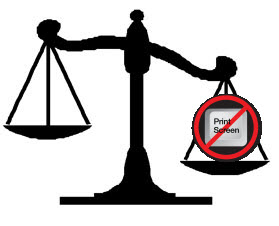The Supreme Court of Vermont overturned a felony conviction due to the prosecutions’ failure to properly authenticate social media evidence, finding that the printed records subpoenaed directly from Facebook were insufficient. (Vermont v. Allcock, July 10, 2020) Defendant Christina Allcock appealed her convictions for aggravated assault on a police officer and other related lesser offences, asserting the trial court erred in admitting Facebook messages that lacked sufficient evidentiary foundation. The Vermont Supreme Court reversed the main aggravated assault conviction, but affirmed the lesser charges.
During trial, the State moved to admit a “Facebook Business Record” that included private messages sent from a Facebook account with defendant’s name that implicated her and served as key evidence in her conviction. Law enforcement officers testified that they learned of these messages when the recipient contacted the police and provided screenshots of the messages on his phone. The police then executed a search warrant and obtained data from Facebook regarding the page registered in defendant’s name, in the form of the Facebook Business Record. The record listed the account holder’s name, email addresses, phone numbers, but there was no testimony at trial directly tying this information to the defendant.
The Vermont Supreme Court ruled that the Facebook content:
“[C]annot be authenticated merely by the fact that the account from which the messages were sent purported to be that of defendant Christina Allcock. The Court cited 2 R. Mosteller et al., McCormick on Evidence § 221 (8th ed.) (explaining that the purported signature or recital of authorship on the face of a writing is not sufficient proof of authenticity to secure the admission of the writing into evidence). Digital communications are no different from other writings in this regard. The ‘judicial skepticism toward the recital of authorship in documents’ is viewed as a necessary check on the perpetuation of fraud.” Id.
The court also noted that “the fact that the Facebook Business Record showed that the account was registered in defendant’s name likewise does not provide sufficient information from which a jury could conclude that the account belonged to defendant and that she sent the messages at issue…The critical question for purposes of authentication is whether the account did in fact belong to defendant.”
The court provided guidance on how the prosecution could have successfully authenticated the Facebook evidence, such as presenting “evidence that the Facebook page associated with the account in question had distinct information or personal photos not in the public domain” or unique identifying metadata associated with the account in question.
Vermont v. Allcock is yet another illustration why software that supports best practices is needed to properly collect and preserve social media evidence. The case is also a lesson that obtaining a mere printout of records from the social media provider itself is insufficient. Instead, the examiner who preserved the social media or other Internet must be able to present sufficient evidence that “in combination with circumstantial indicia of authenticity (such as the dates and web addresses), will support a finding” that the evidence presented is what the proponent asserts. Perfect 10, Inc. v. Cybernet Ventures, Inc. (C.D.Cal.2002) 213 F.Supp.2d 1146, 1154. (See also, Lorraine v. Markel American Insurance Company, 241 F.R.D. 534, 546 (D.Md. May 4, 2007) (citing Perfect 10, and referencing MD5 hash values as an additional element of potential “circumstantial indicia” for authentication of electronic evidence).
One of the many benefits of X1 Social Discovery is its ability to preserve and display all the available “circumstantial indicia” or “additional confirming circumstances,” in order to present the best case possible for authenticating social media evidence collected with the software. This includes collecting all available metadata, including account and message IDs and generating a hash value checksum of the preserved data for verification of the integrity of the evidence. It is important to collect and preserve social media posts, messages, accounts and general web pages in a thorough manner with best-practices technology specifically designed for litigation purposes. There are over twenty unique metadata fields associated with individual Facebook posts and messages. Any one of those entries, or any combination of them could provide unique circumstantial evidence that would establish foundational proof of authorship, which is one of the many reasons why thousands of legal and investigative professionals rely on X1 Social Discovery.
